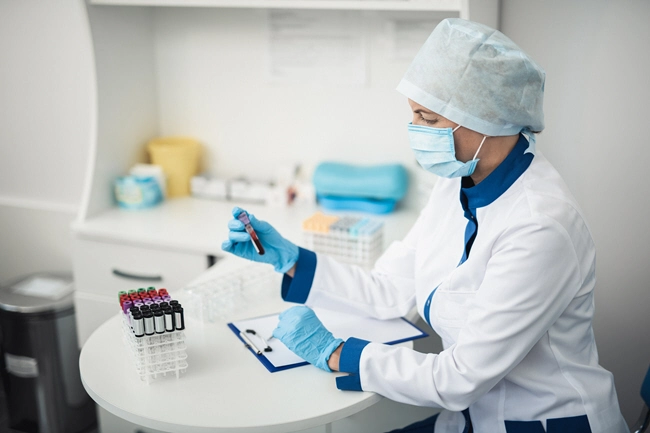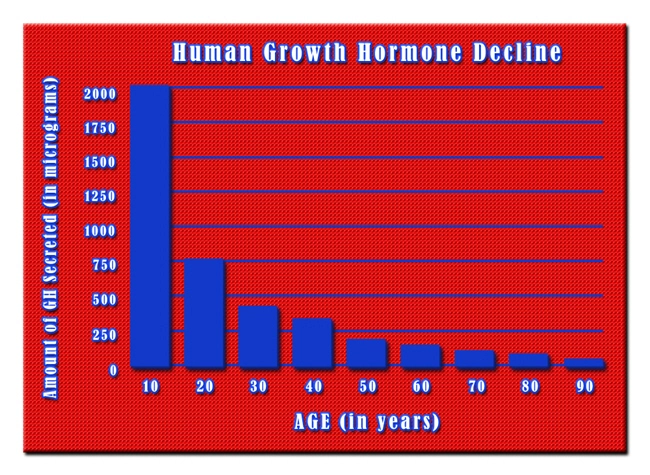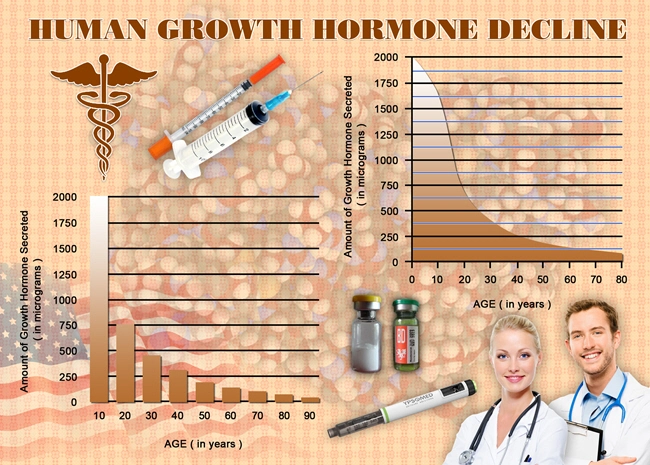
Introduction to Penis Shrinkage
Penis shrinkage, or penile atrophy, is a concern that affects many American males, often leading to psychological distress and a diminished quality of life. This condition can be caused by various factors, including aging, hormonal imbalances, and certain medical treatments. As urological science advances, new treatments are emerging that offer hope for those affected by this distressing condition.
Understanding the Causes of Penis Shrinkage
Penis shrinkage can result from a variety of underlying issues. Aging is a primary factor, as it leads to a natural decline in testosterone levels, which can affect penile tissue. Additionally, conditions such as Peyronie's disease, diabetes, and the use of certain medications, particularly those for prostate cancer, can contribute to penile atrophy. Understanding these causes is crucial for developing effective treatments.
Emerging Treatments for Penis Shrinkage
Recent advancements in urological care have led to the development of innovative treatments aimed at reversing or mitigating penis shrinkage. One promising approach is the use of **stem cell therapy**. Stem cells have the potential to regenerate damaged tissues, and preliminary studies have shown that injecting stem cells into the penis can improve tissue health and function. This treatment is still in the experimental phase but holds significant promise for the future.
Another emerging treatment is **shockwave therapy**, which uses low-intensity extracorporeal shockwaves to stimulate angiogenesis and tissue regeneration in the penis. This non-invasive method has been shown to improve erectile function and potentially reverse penile atrophy. Clinical trials are ongoing, but early results are encouraging.
Pharmacological Advances
In addition to these regenerative therapies, pharmacological advancements are also on the horizon. **Topical treatments** containing vasodilators and growth factors are being developed to enhance blood flow and promote tissue growth in the penis. These treatments are applied directly to the affected area and have shown potential in early studies.
Moreover, **hormone replacement therapy** (HRT) is being refined to more effectively address the hormonal imbalances that contribute to penis shrinkage. New formulations of testosterone are being developed to provide a more stable and sustained release, potentially reducing the risk of side effects associated with traditional HRT.
The Role of Lifestyle Modifications
While innovative treatments are crucial, lifestyle modifications also play a significant role in managing penis shrinkage. Regular exercise, particularly pelvic floor exercises, can improve blood flow to the penis and support overall penile health. Additionally, maintaining a healthy diet and managing conditions such as diabetes and hypertension can mitigate the risk of penile atrophy.
Future Directions in Urological Research
The field of urology is rapidly evolving, with ongoing research aimed at further understanding the mechanisms of penis shrinkage and developing more effective treatments. Collaborative efforts between researchers, clinicians, and patients are essential to advance this field. As new technologies and therapies are developed, the hope is that penis shrinkage will become a manageable condition, allowing American males to maintain their quality of life.
Conclusion
Penis shrinkage is a complex issue that affects many American males, but the future of urological care looks promising. With innovative treatments such as stem cell therapy, shockwave therapy, and advanced pharmacological options, there is hope for those affected by this condition. By combining these treatments with lifestyle modifications and ongoing research, the urological community is working towards a future where penis shrinkage can be effectively managed and treated.
Contact Us Today For A Free Consultation
Dear Patient,
Once you have completing the above contact form, for security purposes and confirmation, please confirm your information by calling us.
Please call now: 1-800-380-5339.
Welcoming You To Our Clinic, Professor Tom Henderson.

- Penile Atrophy: Symptoms, Causes, and Management Strategies for American Males [Last Updated On: February 21st, 2025] [Originally Added On: February 21st, 2025]
- Deciphering the Mystique Surrounding Male Genital Diminution: Reality vs. Folklore [Last Updated On: February 25th, 2025] [Originally Added On: February 25th, 2025]
- Grasping the Enigma of Male Genital Diminishment: Comprehending Causes and Implications [Last Updated On: February 26th, 2025] [Originally Added On: February 26th, 2025]
- Understanding the Process: The Evolution of Male Sexual Organ Size Through the Years [Last Updated On: February 27th, 2025] [Originally Added On: February 27th, 2025]
- Decoding the Enigma: A Scientific Approach to Hormonal Balance, Human Health, and the Phenomenon of Penile Shrinkage [Last Updated On: February 28th, 2025] [Originally Added On: February 28th, 2025]
- Exploring the Interplay: Body Weight, Dietary Habits and Sexual Health [Last Updated On: February 28th, 2025] [Originally Added On: February 28th, 2025]
- Unveiling Andropause: Understanding Male Menopause and Its Effects on Penile Health [Last Updated On: March 1st, 2025] [Originally Added On: March 1st, 2025]
- Demystifying the Enigma: A Candid Talk on Penile Retraction [Last Updated On: March 1st, 2025] [Originally Added On: March 1st, 2025]
- The Enigma of Anxiety: Exploring its Impact on Male Reproductive Health [Last Updated On: March 2nd, 2025] [Originally Added On: March 2nd, 2025]
- Exploring Testosterone: Its Critical Role in Muscle Mass, Fat Distribution, and Bone Health [Last Updated On: March 3rd, 2025] [Originally Added On: March 3rd, 2025]
- Understanding Physical Changes After Prostate Surgery: Insights and Coping [Last Updated On: March 4th, 2025] [Originally Added On: March 4th, 2025]
- Linking Physical Activity to Male Sexual Health and Preventing Penile Shrinkage [Last Updated On: March 5th, 2025] [Originally Added On: March 5th, 2025]
- Understanding Blood Flow's Role in Penile Health and Erection Quality [Last Updated On: March 6th, 2025] [Originally Added On: March 6th, 2025]
- Genetic Predispositions and Lifestyle Choices: Unraveling the Factors Behind Penis Size and Shrinkage [Last Updated On: March 6th, 2025] [Originally Added On: March 6th, 2025]
- Impact of Smoking and Alcohol on Male Sexual Health: Lifestyle Factors Unveiled [Last Updated On: March 7th, 2025] [Originally Added On: March 7th, 2025]
- Debunking Myths and Facts: Understanding the Causes of Penis Shrinkage in Men [Last Updated On: March 8th, 2025] [Originally Added On: March 8th, 2025]
- Understanding Chronic Illness Effects on Genital Health in American Men: Strategies for Wellness [Last Updated On: March 9th, 2025] [Originally Added On: March 9th, 2025]
- Unveiling the Link Between Diabetes and Penile Size: A Metabolic Perspective [Last Updated On: March 12th, 2025] [Originally Added On: March 12th, 2025]
- Environmental Toxins and Penis Shrinkage: Exploring the Impact on American Males [Last Updated On: March 13th, 2025] [Originally Added On: March 13th, 2025]
- Understanding Global Variations in Penile Dimensions: A Comprehensive Overview [Last Updated On: March 15th, 2025] [Originally Added On: March 15th, 2025]
- Obesity's Impact on Genital Health: Understanding Penis Shrinkage in American Males [Last Updated On: March 18th, 2025] [Originally Added On: March 18th, 2025]
- Inflammation and Oxidative Stress: Hidden Causes of Penile Shrinkage in American Males [Last Updated On: March 18th, 2025] [Originally Added On: March 18th, 2025]
- Weight Loss Reverses Penile Length Reduction in American Males: Scientific Insights [Last Updated On: March 18th, 2025] [Originally Added On: March 18th, 2025]
- High Blood Pressure's Impact on Penis Size: Understanding Shrinkage and Prevention [Last Updated On: March 18th, 2025] [Originally Added On: March 18th, 2025]
- Diet and Nutrition: Key to Preventing Penile Shrinkage and Enhancing Health [Last Updated On: March 19th, 2025] [Originally Added On: March 19th, 2025]
- Hormonal Imbalances and Penis Size: Understanding Endocrine Disruptions in American Males [Last Updated On: March 19th, 2025] [Originally Added On: March 19th, 2025]
- Sedentary Lifestyles and Male Genital Health: Understanding Penis Shrinkage [Last Updated On: March 19th, 2025] [Originally Added On: March 19th, 2025]
- Understanding Penile Aging: Normal Shrinkage vs. Medical Concerns in American Men [Last Updated On: March 19th, 2025] [Originally Added On: March 19th, 2025]
- Measuring Penis Size: Tools, Techniques, and Understanding Shrinkage in American Males [Last Updated On: March 21st, 2025] [Originally Added On: March 21st, 2025]
- Exploring Herbs and Supplements to Prevent Penis Shrinkage: A Guide for American Males [Last Updated On: March 21st, 2025] [Originally Added On: March 21st, 2025]
- Prostate Health and Penis Size: Understanding Shrinkage and Prevention Strategies [Last Updated On: March 21st, 2025] [Originally Added On: March 21st, 2025]
- Medications Linked to Penile Shrinkage: Causes and Management Strategies [Last Updated On: March 22nd, 2025] [Originally Added On: March 22nd, 2025]
- Understanding Penile Size: Measurement, Shrinkage, and Health for American Males [Last Updated On: March 22nd, 2025] [Originally Added On: March 22nd, 2025]
- Psychological Strategies to Manage Perceived Penis Shrinkage in American Males [Last Updated On: March 22nd, 2025] [Originally Added On: March 22nd, 2025]
- Metabolic Syndrome Linked to Penis Shrinkage in American Males: Prevention and Treatment [Last Updated On: March 22nd, 2025] [Originally Added On: March 22nd, 2025]
- Penile Atrophy: Causes, Detection, and Management for American Males [Last Updated On: March 23rd, 2025] [Originally Added On: March 23rd, 2025]
- Aging and Penile Health: Understanding Shrinkage and Enhancing Vitality [Last Updated On: March 23rd, 2025] [Originally Added On: March 23rd, 2025]
- Exercise Mitigates Age-Related Penile Shrinkage in American Males: Scientific Insights [Last Updated On: March 24th, 2025] [Originally Added On: March 24th, 2025]
- HRT's Role in Combating Penis Shrinkage: Benefits, Risks, and Lifestyle Impact [Last Updated On: March 24th, 2025] [Originally Added On: March 24th, 2025]
- Anti-Inflammatory Diets: A Promising Approach to Preventing Penile Shrinkage in American Males [Last Updated On: March 24th, 2025] [Originally Added On: March 24th, 2025]
- Environmental Pollution and Its Potential Impact on Male Penis Size: A Comprehensive Review [Last Updated On: March 24th, 2025] [Originally Added On: March 24th, 2025]
- Combatting Penis Shrinkage: Holistic Health Strategies for American Males [Last Updated On: March 24th, 2025] [Originally Added On: March 24th, 2025]
- Understanding and Treating Penis Shrinkage: Causes and Emerging Therapies [Last Updated On: March 24th, 2025] [Originally Added On: March 24th, 2025]
- Penis Shrinkage and ED: Causes, Overlap, and Treatment Options for American Males [Last Updated On: March 25th, 2025] [Originally Added On: March 25th, 2025]
- Chronic Stress and Cortisol: Impacts on Penile Health and Shrinkage in American Males [Last Updated On: March 25th, 2025] [Originally Added On: March 25th, 2025]
- Sleep Disorders and Penis Shrinkage: Impact on Men's Sexual Health [Last Updated On: March 25th, 2025] [Originally Added On: March 25th, 2025]
- Preventing Penis Shrinkage: Aging, Lifestyle, and Health Strategies for American Men [Last Updated On: March 25th, 2025] [Originally Added On: March 25th, 2025]
- Chronic Illnesses and Penis Shrinkage: Impacts and Management for American Males [Last Updated On: March 25th, 2025] [Originally Added On: March 25th, 2025]
- Smoking's Impact on Penis Health: Shrinkage, Cessation Strategies, and Recovery [Last Updated On: March 25th, 2025] [Originally Added On: March 25th, 2025]
- Understanding Penis Shrinkage: Causes, When to Seek Help, and Treatment Options [Last Updated On: March 26th, 2025] [Originally Added On: March 26th, 2025]
- Peyronie's Disease: Understanding Causes, Effects on Penis Size, and Treatment Options [Last Updated On: March 26th, 2025] [Originally Added On: March 26th, 2025]
- Understanding Penile Atrophy: Causes, Diagnosis, and Management Strategies for American Males [Last Updated On: March 26th, 2025] [Originally Added On: March 26th, 2025]
- Sleep Quality's Impact on Penile Health and Sexual Vitality in American Males [Last Updated On: March 26th, 2025] [Originally Added On: March 26th, 2025]
- Cardiovascular Exercise: A Key to Combating Penis Shrinkage in American Males [Last Updated On: March 26th, 2025] [Originally Added On: March 26th, 2025]
- Relationship Dynamics and Their Impact on Perceived Penis Size and Shrinkage Anxiety [Last Updated On: March 26th, 2025] [Originally Added On: March 26th, 2025]
- Understanding Penis Shrinkage: Causes, Impacts, and Overcoming Stigma [Last Updated On: March 26th, 2025] [Originally Added On: March 26th, 2025]
- Genetic Variability and Penis Size: Understanding Shrinkage in American Males [Last Updated On: March 26th, 2025] [Originally Added On: March 26th, 2025]
- Androgens' Crucial Role in Penis Health and Preventing Shrinkage [Last Updated On: March 27th, 2025] [Originally Added On: March 27th, 2025]
- Meditation and Stress-Reduction Techniques for Enhancing Penis Health and Combating Shrinkage [Last Updated On: March 27th, 2025] [Originally Added On: March 27th, 2025]
- Understanding Penis Shrinkage: Causes, Effects, and Remedies for American Males [Last Updated On: March 27th, 2025] [Originally Added On: March 27th, 2025]
- Vascular Surgery: A Key Solution for Preventing Penis Shrinkage and Enhancing Penile Health [Last Updated On: March 27th, 2025] [Originally Added On: March 27th, 2025]
- Weight Loss and Penis Size: Understanding Perceptual Changes in American Males [Last Updated On: March 27th, 2025] [Originally Added On: March 27th, 2025]
- Alcohol's Impact on Penis Size: The Importance of Moderation in Male Health [Last Updated On: March 27th, 2025] [Originally Added On: March 27th, 2025]
- Preventing Penile Shrinkage: Enhancing Vascular Health in American Males [Last Updated On: March 27th, 2025] [Originally Added On: March 27th, 2025]
- Boost Testosterone Naturally: Diet, Exercise, and Lifestyle to Prevent Penis Shrinkage [Last Updated On: March 27th, 2025] [Originally Added On: March 27th, 2025]
- Chronic Diseases and Their Impact on Penile Health and Shrinkage [Last Updated On: March 28th, 2025] [Originally Added On: March 28th, 2025]
- Inflammation's Impact on Penis Size: Cellular Mechanisms and Preventive Strategies [Last Updated On: March 28th, 2025] [Originally Added On: March 28th, 2025]
- American Men Share Personal Journeys with Penile Atrophy: Causes, Treatments, and Coping [Last Updated On: March 28th, 2025] [Originally Added On: March 28th, 2025]
- Guide to Accurate Penis Measurement and Addressing Shrinkage Concerns [Last Updated On: March 30th, 2025] [Originally Added On: March 30th, 2025]
- Understanding Penis Shrinkage: Causes, Impacts, and Holistic Management Strategies [Last Updated On: April 1st, 2025] [Originally Added On: April 1st, 2025]









